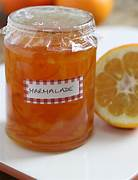
A box of bitter oranges from the trees of the Real Alcázar of Seville, the oldest palace in use in Europe, will arrive in the form of jam at Buckingham, London, thus recovering a tradition that had been lost at the beginning of the 20th century. The transformation of citrus into jam will take place in Madrid, at the residence of the British ambassador to Spain, Hugh Elliot, who last February wrote a letter to the director of the Alcázar Isabel Rodríguez, to thank her for the gift: “I am very happy that this tradition from the beginning of the 20th century that had been lost, fortunately has now been recovered,” says the handwritten letter.
“When Manuel del Valle was appointed warden of the Alcázar told me that there used to be a tradition of sending bitter oranges to British monarchs and that it would be nice to be able to get it back. Last year we contacted the honorary consul in Seville, Joe Cooper, and prepared a box of oranges, about 20 kilos, for him from our trees. He sent it by diplomatic bag to the ambassador, who was in charge of preparing the jam and delivering it to the Queen of England," explained this Wednesday Isabel Rodríguez.
"This year, however, it was the Seville consul who visited us last week to collect them directly and, again, send them to Madrid, as has been done,” added Rodríguez. The Alcázar is surrounded by some 7,000 square meters of gardens in which 1,053 orange trees grow. Its fruits have to be harvested every year to favour the new flowering, a task that is done by hand. Without the harvest of ripe oranges, the city would lose part of the characteristic smell of orange blossom that surrounds it every spring.
One legend, of the many that circulates around this palace, says that it was Pedro I El Cruel (1334 -1369) who planted a bitter orange tree in the Alcázar and which according to experts is the oldest in Spain. However, some sources disagree and date this tree to the 16th century. Those who support this second theory assure that the orange tree was planted in March 1526 when the wedding of Carlos V and Isabel de Portugal was celebrated in the palace. What is documented is that these citrus fruits were brought by the Almohads in the 12th century.
All the bitter oranges that are collected each year in Seville, those of the Alcázar and those of the 48,000 trees that adorn city streets and gardens, are used to make compost and cosmetics, as feed for goats in livestock farms or as fuel to generate electricity. However, very little of its production is destined for the food industry, which requires strict quality controls.
Question 1: [2 POINTS]
Indicate clearly by writing the words TRUE or FALSE whether the following statements are true or false according to the text and provide the sentence or part of the text that justifies your answer. The evidence must make sense and be grammatically and lexically coherent.
A. The tradition of sending bitter oranges to British monarchs was revived by the British ambassador to Spain.
B. Bitter oranges from the Alcázar are mainly used for food production.
C. The bitter orange tree planted by Pedro I El Cruel is the oldest in Spain, according to all sources.
D. The bitter orange trees in Seville contribute to the city’s distinctive smell in spring.
Question 2: [2 POINTS]
Choose and answer only TWO of the following questions in your own words according to the text.
A. How did the tradition of sending bitter oranges to British monarchs start, and how has it been revived?
B. What are some of the uses of bitter oranges that are collected in Seville, as mentioned in the text?
C. What is the legend surrounding the bitter orange tree planted in the Alcázar by Pedro I El Cruel?
Question 3: [1.5 POINTS]
Find in the text:
A. A synonym for “transform” (paragraph 1).
B. An antonym for “coincide” (paragraph 4).
C. A word that means “a collection of myths or stories” (paragraph 4).
D. A word derived from “to produce” (paragraph 5).
Question 4: [1.5 POINTS]
Choose the correct option - A, B, C, or D - for each question. Indicate your choice clearly in your answer sheet, either by writing the letter A, B, C, or D, or by copying the letter and the sentence that follows.
1. According to the text, why is the harvest of bitter oranges important?
A. It helps maintain the fertility of the Alcázar gardens.
B. It contributes to the characteristic fragrance of Seville in spring.
C. It is necessary for the production of jam.
D. It is used for medicinal purposes.
2. What is the author’s attitude towards the tradition of sending bitter oranges to British monarchs?
A. Positive and appreciative of its cultural significance.
B. Indifferent, as it is just an old custom.
C. Critical of the use of citrus fruits for diplomatic purposes.
D. Confused, as the tradition was lost and has only recently been revived.
3. In the sentence, “One legend, of the many that circulates around this palace, says that it was Pedro I El Cruel (1334 -1369) who planted a bitter orange tree in the Alcázar,” what is the meaning of “circulates”?
A. Is spread among people or communities.
B. Is documented in historical records.
C. Is a part of official records.
D. Is proven to be true.
Question 5: [3 POINTS]
Write an essay in which you discuss the following statement:
“The use of traditional customs and symbols helps preserve cultural heritage.”
KEY
Question 1:
Indicate TRUE or FALSE and provide justification from the text.
A. The tradition of sending bitter oranges to British monarchs was revived by the British ambassador to Spain.
TRUE.
“Last year we contacted the honorary consul in Seville, Joe Cooper... He sent it by diplomatic bag to the ambassador, who was in charge of preparing the jam and delivering it to the Queen of England.”
B. Bitter oranges from the Alcázar are mainly used for food production.
FALSE.
“All the bitter oranges that are collected each year in Seville... are used to make compost and cosmetics, as feed for goats in livestock farms or as fuel to generate electricity.”
C. The bitter orange tree planted by Pedro I El Cruel is the oldest in Spain, according to all sources.
FALSE.
“One legend... says that it was Pedro I El Cruel... However, some sources disagree and date this tree to the 16th century.”
D. The bitter orange trees in Seville contribute to the city’s distinctive smell in spring.
TRUE.
“Without the harvest of ripe oranges, the city would lose part of the characteristic smell of orange blossom that surrounds it every spring.”
Question 2:
A. How did the tradition of sending bitter oranges to British monarchs start, and how has it been revived?
The tradition began in the early 20th century when bitter oranges from the Alcázar were sent to British monarchs. It was revived when Manuel del Valle, warden of the Alcázar, proposed restarting it. The honorary consul in Seville and the British ambassador worked together to send oranges to the UK, where they were made into jam and delivered to the Queen.
B. What are some of the uses of bitter oranges that are collected in Seville, as mentioned in the text?
The bitter oranges collected in Seville are used to produce compost, make cosmetics, feed livestock (goats), and even generate electricity. Only a small portion is used for food production due to strict quality standards.
C. What is the legend surrounding the bitter orange tree planted in the Alcázar by Pedro I El Cruel?
The legend claims that Pedro I El Cruel planted a bitter orange tree in the Alcázar, which is believed to be the oldest in Spain. However, some sources dispute this, arguing that the tree was planted during the wedding of Carlos V and Isabel de Portugal in 1526.
Question 3:
A. A synonym for “transform” (paragraph 1): “conversion”.
B. An antonym for “coincide” (paragraph 5): “disagree”.
C. A word that means “a collection of myths or stories” (paragraph 6): “legend”.
D. A word derived from “to produce” (paragraph 3): “production”.
Question 4:
1. According to the text, why is the harvest of bitter oranges important?
B. It contributes to the characteristic fragrance of Seville in spring.
2. What is the author’s attitude towards the tradition of sending bitter oranges to British monarchs?
A. Positive and appreciative of its cultural significance.
3. In the sentence, “One legend, of the many that circulates around this palace, says that it was Pedro I El Cruel (1334 -1369) who planted a bitter orange tree in the Alcázar,” what is the meaning of “circulates”?
A. Is spread among people or communities.



